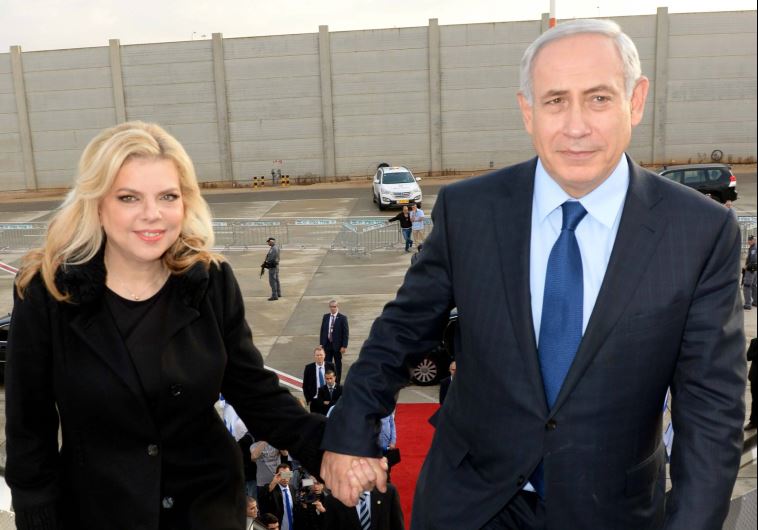Reality Check: Oval Office home truths
Netanyahu’s Washington visit already has begun under a cloud due to last week’s appointment of Ran Baratz as his public diplomacy chief.
 Benjamin and Sara Netanyahu board plane to US at Ben-Gurion Airport(photo credit: HAIM ZACH/GPO)Updated:
Benjamin and Sara Netanyahu board plane to US at Ben-Gurion Airport(photo credit: HAIM ZACH/GPO)Updated: